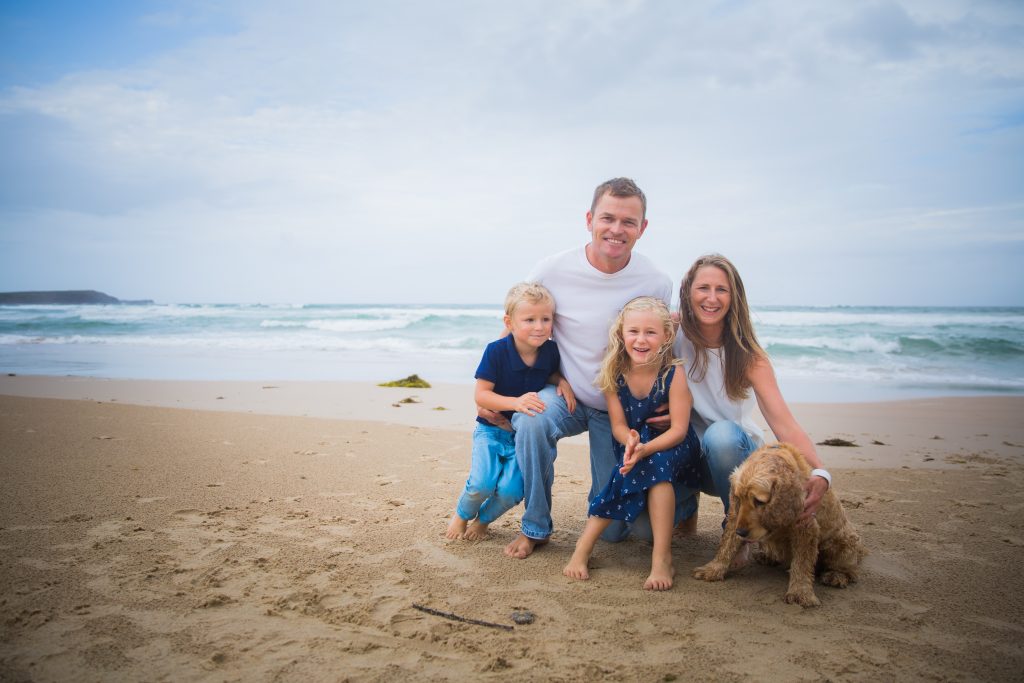Raising children is certainly the hardest thing I’ve ever had to do, and I’m only 5 years in! It’s consistently challenging, and every time I feel I’m learning and growing they seem to take another step forward and enter a whole new stage.
Within these notes you’ll find a positive way to parent. What I’ve noticed is that most of the time it will help me move both myself and my family in a positive direction, but trust me, it won’t work all the time. There will still be situations and issues with your kids that leave you walking to the letterbox in frustration, just to have a moment (and that’s possibly all you’ll get) of peace before returning to the demands of parenting.
There are a few things that have significantly influenced my parenting. The first is the Buddhist concept of ‘there is only this moment, and it too shall pass’ and the second is the Virtues Project, the third is the way we praise them and the fourth is becoming a role model for them. Let me explain a little more.
1. There is only this moment
If you’re looking for a way to become more peaceful as a parent I recommend reading ‘Buddhism for Mothers’ by Sarah Napthali. She explains how our negative state of mind is a reflection of our expectations not being met and it’s only in letting go of our expectations that we can find peace. In letting go of our expectations as a parent we become truly free to enjoy the many beautiful moments with our children. A lovely way to bring this into your family is to have mindful moments. These are short little opportunities to completely engage in the present moment and be with our children without other distractions entering our minds. Start with two minutes and work up from there. Here are some ideas, but be creative and playful and see what works for your family: 1) Lay on the grass and watch the clouds float by, imagining the clouds as animals 2) Collect leaves in a bucket then make a big love heart out of them 3) Watch a snail, ant or butterfly journey around a garden 4) Take 5 deep breaths and simply feel the air entering and leaving your bodies
Once you have these mindful moments down pat they become a resource to draw on when a family member get’s upset or angry, children and adults alike. If your son is sad about not getting a new toy, talk to him about having a mindful moment. This brings his attention and awareness back to the present moment and away from the negative feelings he’s dwelling on. Be aware, his emotions aren’t wrong, and we don’t need to change them, but we can validate his experience of being disappointed and redirect his attention to the present moment.
2. The Virtues Project
The Virtues project is an international movement to empower families to raise children and community members to live and practice virtues in everyday life. Virtues are character traits and behaviours that show high moral standards and are a core part of every religious or spiritual text.
Learning the language
Children and adults alike need to begin with learning a new language. This is a positive language that develops the best attributes and character traits within us. When you begin to learn and use the virtues in everyday language your children will respond positively. A list of the 50 virtues is available online, it’s a great idea to focus on one virtue each week and find situations in everyday life to explain, demonstrate and model the virtue.
Recognise teachable moments
A teachable moment is any time in a parenting situation where you can bring virtues into a conversation. Essentially you can talk about virtues when you are praising your child, or when you’re disciplining or correcting your child’s behaviour. Many parents praise kids by saying “Great job” when they do something well. This is a blanket statement and gives them no insight into why you value their behaviour. Try to name the virtue they have displayed with the behaviour they have demonstrated to help them understand specifically what you value and why. Instead saying “I really appreciate your helpfulness today when you set the table; it shows me you care for our family.”
On the flip side, when your child does something that goes against the virtues, like hitting his sister, rather than yell and tell them it’s wrong, it’s an opportunity to explain why being gentle is important to not hurt someone else. It could be a lesson in compassion if the other child is crying, or in kindness if he chooses to say sorry. So any time your child needs to be disciplined, try to outline the virtue that they need to build and give them an example of the behaviour that you’d like to see.
Children will take a little time to respond to this different way of parenting, but like anything it’s only with consistency that they will begin to change and respect the virtues as a way of life.
3. Praise effort not outcome
There is much research now around how to praise a child to help them develop a positive self image and self esteem. It’s been found that when we praise the outcome, ie “That’s a beautiful painting” or “Great race, you were so far in front of the other kids!” we’re actually reinforcing their need to get it right. This can lead to a fixed mindset in the child meaning the child views success as winning, coming first or getting something perfect and everything else as failure.
When we praise the effort that they have put into something we are rewarding their focus, their commitment, their dedication and drive to making it happen, regardless of the outcome. This in turn supports them to learn that putting effort into their endeavours is a positive thing and in itself is success. The learning becomes more important than the outcome and that leads to a growth mindset, which is associated with both higher self esteem and more positive life outcomes.
4. Become their role model
Emotional intelligence (EQ) is a great predictor of adult success both in personal and professional endeavours. In fact IQ only equates to around 20% of an individual’s success while the rest can be determined by EQ. Becoming a great role model is much more than ‘doing the right thing,’ it’s the ability to manage our internal world for the benefit of ourselves and others. Emotional intelligence is made up of:
- Self awareness – our ability to recognise our thoughts and emotions
- Self management – our ability to regulate our behaviour despite our thoughts and emotions.
- Responsible decision making – using our discernment and virtues to make positive choices in ours and our families lives
- Social awareness – recognising others emotional cues, without judgement and being in tune with our social environment
- Relationship skills – Nurturing and deepening relationships with love, kindness, compassion and respect
When children see your behaviour models the above they begin to use the same style of behaviour. The more you focus on developing your own emotional intelligence the more chance your child has for both happiness and success later in life.
Of the above 4 concepts, what stands out for you most and what two ideas can you begin to implement with your family this week?





